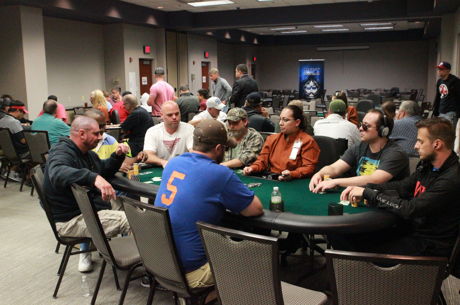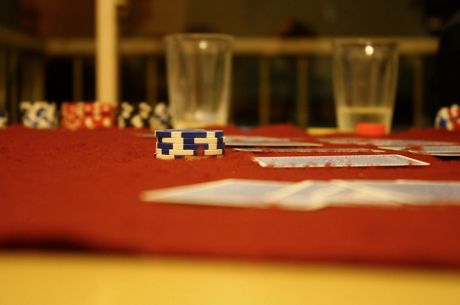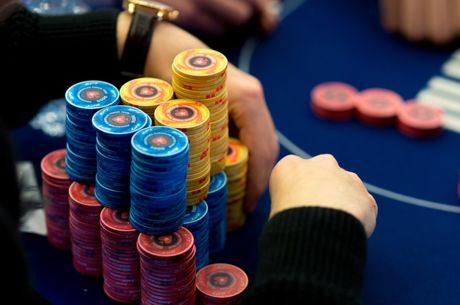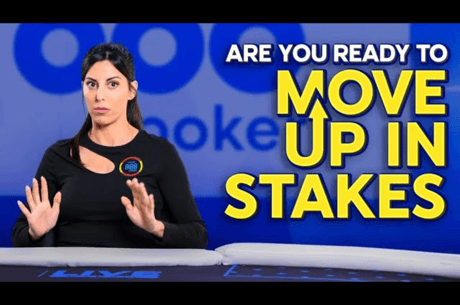Don't Let Strong Starting Hands Trick You Into Thinking You "Deserve" the Pot
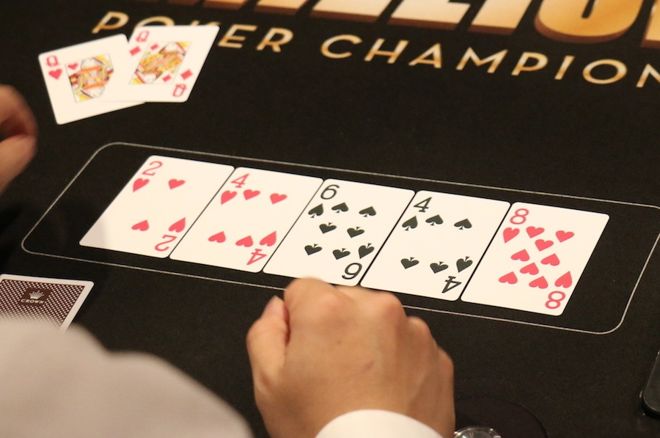
Most of us understand how the best starting hands don't necessarily become the best finishing hands in no-limit hold'em.
It's always nice to look down at pocket aces or ace-king or even pocket nines sometimes and know you certainly (or likely) have a head start on everyone else before the action begins. But four betting rounds and five community cards later, even aces can be vulnerable and provide no guarantee you'll drag the chips.
Even though we know this to be true, there sometimes still remains a kind of psychological barrier to accepting the fact that your good starting hand isn't going to be a winner. For some players this barrier becomes even harder to get over when they play their strong starting hand in a less than straightforward way �� when their "fancy" play actually leads them into a situation where their hand loses value (and probably should be folded).
I saw this very idea play out during a home game a couple of weeks ago. A hand came up in which I was in early position and being dealt something like J?4? I folded. The player to my left then limped in, and it folded around to the player in the cutoff who also limped.
There hadn't been too much limping in this particular game, but occasionally it would happen and so it didn't seem too surprising to see the button and both blinds also come along to creative a five-way family pot. It was an example of what the poker author John Vorhaus once called a "limpede" in his Killer Poker books �� that is, an early position call encouraging a stampede of limpers.
It's the player in the cutoff on whom we're focusing in this hand, because as it turns out he limped behind with Q?Q?. And now he was one of five players seeing a flop come 10?8?7?.
It checked to him and he made a bet that was on the large side �� around three-fourths of the pot, if I remember correctly �� and both the button and one of the blinds called. The turn was the 3?, adding a third diamond to the board. This time the player in the blinds led with a bet (about half the pot, I believe), the player with queens called, and the button folded.
The river was the 6?. Now there was four to a straight to go along with those diamonds, and the player in the blinds was betting again. The fellow with the queens hesitated just a little while before calling, and he was already shaking his head when the other player turned over K?J? for the flush.
He then showed his queens, and grumbled something about how he knew he was beaten and should have folded on the turn.
Strategically speaking, his decision not to raise before the flop was obviously a poor one for a variety of reasons. He's not building a pot with one of the best hands in no-limit hold'em. He's not doing anything to assure himself postflop position (and in fact the button called, too, meaning he didn't get to act last after the flop). He's also inviting that "limpede" that came after his limp, and so even though he's most certainly got the best starting hand of the five players with his Q?Q?, it's less likely his queens are going to hold up against four opponents instead of just one or two.
We can agree, then, that the preflop limp wasn't a good idea. In some cases limping in such a spot might not be a bad move, such as when there is a very loose-aggressive player still to act who you are reasonably sure will pounce with a raise (and with a wide range of hands including many weak ones), after which you could then reraise. But in most cases it not going to be a profitable play.
Moving on, though, to his postflop decisions, I think he found himself up against that psychological barrier I mentioned above. He knew he had the best hand preflop, which led to his feeling he somehow deserved to win the pot with it despite the action and board loudly suggesting his queens weren't going to be good at showdown.
I also believe his attempt at a "fancy" play (the preflop limp) compounded the problem, making it even harder for him to let go of the pocket queens. He'd been so sneaky to "hide" the fact that he had a strong starting hand, it made it that much harder for him not to play it through to the end and finally show it to the table (when he didn't even have to!).
In other words, while the preflop error was a small one, the calls thereafter were bigger errors and more costly. It's the latter, more expensive mistakes people make more often with strong starting hands, in part because they have a sense of entitlement brought on by the preflop edge.
Most of us would play pocket queens more aggressively preflop, as we would other strong starting hands. But when we do raise with QxQx and get a caller, then that player shows aggression against us on a coordinated ten-high board, we need to be prepared to let our big hand go.
In Super/System, Doyle Brunson famously said of pocket aces and pocket kings that "one of two things will usually happen... either (1) you'll win a small pot, or (2) you'll lose a big pot." That doesn't always hold true, of course, but the underlying point is a good one to remember �� being dealt a strong starting hand is no guarantee you'll be collecting a big pot soon afterwards.
Don't let the strong starting hand trick you into thinking there isn't work to be done to earn a pot with it. Having two good cards in the hole should be regarded as an initial, positive first step toward earning chips, not a promise of profit. Don't allow such hands to blind you as you get deeper in a hand, turning into a barrier than hinders rather than helps.
Be sure to complete your PokerNews experience by checking out an overview of our mobile and tablet apps here. Stay on top of the poker world from your phone with our mobile iOS and Android app, or fire up our iPad app on your tablet. You can also update your own chip counts from poker tournaments around the world with MyStack on both Android and iOS.

